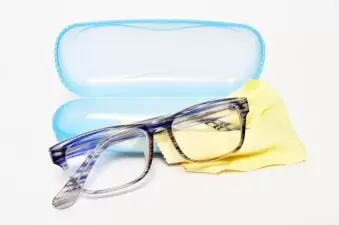
Buying glasses can often feel like a major investment, especially with designer frames and high-index lenses increasing the price. However, it’s entirely possible to save money on this necessary purchase without compromising on style or quality. Here are eleven practical tips to help you save money when buying glasses.
1. Opt for Online Retailers

Online stores typically have lower overhead costs than brick-and-mortar shops, which allows them to offer glasses at a reduced price. Websites also frequently run promotions and discounts that further decrease the cost. Ensure you have an up-to-date prescription, and look for sites that offer a virtual try-on feature to ensure your new frames fit your style.
2. Check for Insurance or Benefits

Before buying glasses, check if your health insurance includes a vision plan that covers eyewear. Some employers also offer Flexible Spending Accounts (FSAs) or Health Savings Accounts (HSAs), which allow you to pay for eyewear with pre-tax dollars, effectively reducing the overall cost.
3. Look for Discounts and Promotions

Always be on the lookout for sales and promotions. Many optical shops offer significant discounts during holidays or as part of seasonal promotions. Signing up for newsletters can keep you informed about upcoming sales and exclusive deals.
4. Purchase Frames and Lenses Separately

Sometimes, buying frames and lenses separately can save money. You may find a frame at a discount store and then have lenses fitted by an optician. This method allows for more flexibility and can often lead to lower costs compared to buying a complete set at one location.
5. Go for Less Known Brands

Designer frames can be costly. Opting for less-known or generic brands can cut costs significantly without sacrificing quality. Plus, many lesser-known brands offer stylish frames that are as durable and attractive as their designer counterparts.
6. Skip the Add-Ons

Lens add-ons like scratch resistance, anti-reflective coating, and UV protection are beneficial but can quickly increase the price. Evaluate which enhancements are essential for you and skip the rest to keep costs down. For those who use glasses sporadically or only for certain tasks like reading, minimizing add-ons can lead to substantial savings without impacting functionality.
7. Reuse Old Frames

If your current frames are still in good shape, consider reusing them and just replacing the lenses. This is particularly cost-effective if your prescription has changed but you still like your current frames. Most opticians can fit new lenses into your existing frames. However, you might want to ask if the service is available in advance, as it’s not universal.
8. Choose Durable Materials

Investing in frames made of durable materials can mean they last longer, reducing the frequency of replacement. While initially more expensive, materials like titanium and stainless steel can be more economical in the long run due to their longevity.
9. Compare Prices

Don’t buy the first pair of glasses you like. Take the time to compare prices from several retailers for the same or similar frames to ensure you are getting the best deal. Price comparison tools online can help you find the best prices quickly, so consider starting there if you’re unsure about where to find the best available deal.
10. Take Advantage of Return Policies

Make sure to purchase glasses from retailers that offer favorable return policies. Generally, you can find this information online, though you can also call before your appointment and ask for the details. This gives you the flexibility to return glasses that may not meet your expectations or that you find cheaper elsewhere.
11. Maintain Your Glasses

Properly maintaining your glasses can extend their life and save you money over time. Store them in a case when not in use, clean them regularly with suitable products, and handle them with care to avoid scratches and breaks. That way, you can avoid the cost of new ones for as long as possible.
Use These Tips to Save Money When Buying Glasses

Saving money when buying glasses doesn’t have to mean sacrificing quality or style. By being a savvy shopper and making informed choices, you can find the perfect pair of glasses that suits your needs and your budget. Remember, the key is to research, compare, and take advantage of the best deals and policies available.
Read More:
12 Health Myths That Keep Fooling Us: Here’s Why They’re Wrong
15 Life-Saving Rules You’re Skipping But Absolutely Need to Follow
Catherine is a tech-savvy writer who has focused on the personal finance space for more than eight years. She has a Bachelor’s in Information Technology and enjoys showcasing how tech can simplify everyday personal finance tasks like budgeting, spending tracking, and planning for the future. Additionally, she’s explored the ins and outs of the world of side hustles and loves to share what she’s learned along the way. When she’s not working, you can find her relaxing at home in the Pacific Northwest with her two cats or enjoying a cup of coffee at her neighborhood cafe.

